Team
Team
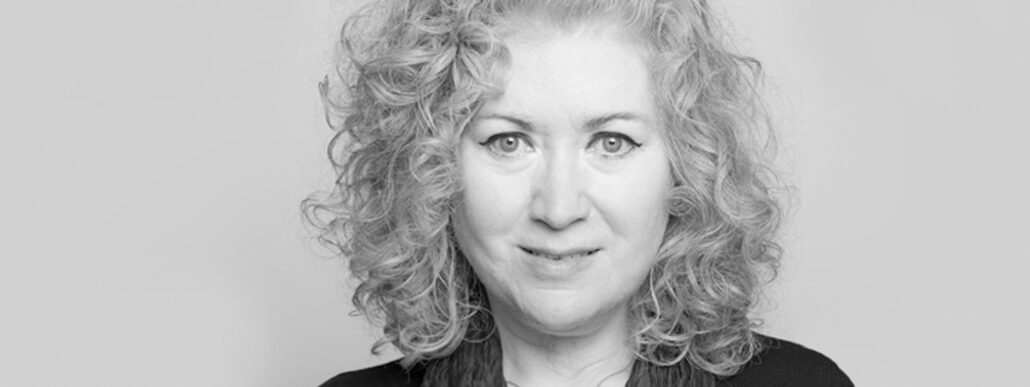
Susanne Marschall has been a Professor of Audiovisual Media, Film, and Television at the Institute for Media Studies at the University of Tübingen since 2010. She also serves as the director of the central institution, the Center for Media Competence, and the Research Center for Animation and Emerging Media. She is the Unit Head of the RHET AI Center for Rhetorical Science Communication—Research on Artificial Intelligence and the research project ’The Answering Machine,’ as well as the editor of the open-access journal ’Colour Turn.’ In 2012, she was voted Germany’s Professor of the Year by the alumni magazine UNICUM BERUF in the category of Humanities, Social Sciences, and Cultural Studies. From 2016 to 2021, she headed the exchange program ’Media Ambassadors India-Germany’ (Bosch Foundation) and was a guest lecturer in the field of cinematography at the Hamburg Media School from 2008 to 2020. She is actively involved in promoting film culture in various ways. Under her supervision, numerous documentary films have been created by media studies students, which have also been shown to a wider audience at festivals or on television.
Publications and films
Author of the MFG-funded documentary films:
– Hölderlins Echo (April 2023)
– Lotte Reiniger – Tanz der Schatten (ARTE 2012, DVD available at absolut medien)
Publications with renowned publishers: Schüren, Fink, Reclam, Metzler, edition text&kritik, Königshausen & Neumann, Bertz&Fischer, Böhlau, Cambridge University Press. A total of 125 essays, encyclopedia articles, and newspaper articles.
Lectures and teaching activities at universities and film institutions in Berlin, Hamburg, Mainz, Ludwigsburg, Frankfurt am Main, Wuppertal, Vienna, Hannover, Berlin, Groningen, Stuttgart, Kassel, Bern, Zurich, Los Angeles, and Pune.
Essays, film reviews, and television and radio interviews as a film expert for Filmdienst, Deutsche Welle, ARTE, SWR, WDR, HR, NDR, and other daily newspapers.
Selected Texts:
Forthcoming: Susanne Marschall, Olaf Kramer, and Anne Burkhardt (Eds.): Artificial Turn. Interdisciplinary Perspectives on Artificial Intelligence. (To be published 2023 by Wissenschaftliche Buchgesellschaft Darmstadt).
Forthcoming: Susanne Marschall (Ed.): Universale Archive. Erinnerungskultur im Medienwandel. (To be published 2023 by Herbert von Harlem Verlag).
Free Colours – Die Farbpalette des animierten Films. In: Franziska Bruckner, Julia Eckel, Erwin Feyersinger, Maike Sarah Reinerth (Hrsg.): Handbuch Animation Studies. (im Druck, erscheint 2023 im Springer-Verlag).
Farbe. In: Britta Hartmann, Ursula von Keitz, Markus Kuhn, Michael Wedel (Hrsg.): Handbuch Filmwissenschaft. Stuttgart: Metzler (im Druck, erscheint 2023).
ColourReflections. Eine Studie zur Farbe im Kino am Beispiel von Bong Jong-hos Parasite. In: Montage AV. Zeitschrift für Theorie und Geschichte audiovisueller Kommunikation. 30/02/2021. S. 171-189. (Demnächst auf Englisch in ColourTurn)
Entfesselte Erzählungen. Zeit, Zeitlichkeit und Zeitstrukturen in der TV-Serie. In: Stefanie Kreuzer (Hrsg.): FilmZeit. Zeitdimensionen des Films. Marburg 2021. S. 441-467.
Filmwissenschaft. In: Werner Nell, Marc Weiland (Hrsg.): Dorf: Ein interdisziplinäres Handbuch. Stuttgart: Metzler, 2019, S. 62-68.
Mit A. Werner: Basics of Color Research. In: Colour Turn 2018. An Interdisciplinary and International Journal. I-3 – I-17. Auf Deutsch: Grundlagen der Farbforschung. In: Konrad Scheurmann, André Karliczek (Hrsg.): Gesprächsstoff Farbe. Beiträge aus Wissenschaft, Kunst und Gesellschaft. Köln: Böhlau, 2017, S. 50-57.
Farbe und Animation. In: Konrad Scheurmann, André Karliczek (Hrsg.): Gesprächsstoff Farbe. Beiträge aus Wissenschaft, Kunst und Gesellschaft. Köln: Böhlau 2017, S. 344-353.
Non Finito: Fragmentary Narration in Films and Television Series. In: Julia Genz, Ulrike Küchler (Hrsg.): Metamorphoses of (New) Media. Cambridge University Press, 2016, S. 196-212.
’The Point of Life’. Satyajit Rays Handschrift in der Apu-Trilogie. In: Susanne Marschall (Hrsg.): Film-Konzepte 39: Satyajit Ray. München: edition text&kritik, 2015.
Kostüm-Bilder. Milena Canonero und Wes Anderson. In: Fabienne Liptay (Hrsg.): Filmkonzepte 40: Milena Canonero. München: edition text+kritik, 2015, S. 70-86.
Bewegung(en) auf dem Tricktisch. Lotte Reinigers Metamorphosen und Tänze im Kontext der Avantgarde. In: Universitätsstadt Tübingen (Hrsg.) Animation und Avantgarde. Lotte Reiniger und der absolute Film. Tübingen 2015, S. 55-70.
Somewhere Inside the Rainbow – Musicals in Technicolor. In: Connie Betz, Rainer Rother, Annika Schaefer (Hrsg.): It’s Glorious Technicolor. Stiftung Deutsche Kinemathek: Berlin: Bertz+Fischer, 2015, S. 72-87.
Vielfalt und Synthese. Indische Schauspielkunst als Paradigma der Transkulturalität. In: Susanne Marschall, Rada Bieberstein (Hrsg.): Indiens Kino-Kulturen. Geschichte – Dramaturgie – Ästhetik. Marburg: Schüren, 2014, S. 45-68.
Feeling really unreal. Ballhaus’ Bildvision für Welt am Draht“. In: Fabienne Liptay (Hrsg.): Filmkonzepte 30: Michael Ballhaus. München: edition text+kritik, 2013, S. 73-84.
Licht und Schatten im Film. In: Christine N. Brinckmann, Britta Hartmann, Ludger Kaczmarek (Hrsg.): Motive des Films – ein kasuistischer Fischzug. Marburg: Schüren, 2012, S. 302-311.
Monomythos und transkulturelle Synthese – Immersion am Beispiel von Avatar. In: Jahrbuch immersiver Medien. Marburg: Schüren, 2012, S. 123-127.
Poetik der Vergänglichkeit. Sinn-Bilder des Flüchtigen in Malerei und Film. In: Henry Keazor / Fabienne Liptay / Susanne Marschall: FilmKunst. Marburg: Schüren, 2011, S. 370-393.
Die Symphonie der Empfindungen – Synästhesie als Filmerfahrung. In: Arnold Groh (Hrsg.): Was ist Farbe? Bunte Beiträge aus der Wissenschaft. Berlin: Weidler, 2011, S. 85-110.
Lost in Lost – die Robinsonade im amerikanischen Quality-TV. In: Ada Bieber, Stefan Greif und Günther Helmes: Angeschwemmt – Fortgeschrieben. Robinsonaden im 20. und beginnenden 21. Jahrhundert, Würzburg: Königshausen&Neumann, 2009, S. 253-266.
Farbe im Kino. First and second edition, Marburg 2005/20

Hannes Rall is Professor of Animation and Associate Chair Research at the School of Art, Design and Media at Nanyang Technological University Singapore and a successful director of animated short films. His films are predominantly animated adaptations of classic literature, most of which have been awarded the title “Especially Valuable”. They have been screened at over 850 film festivals worldwide and have received 91 international awards.
From 2002-2022, 14 of his projects in the areas of screenplay, production and reference film were funded and successfully realized.
Funding institutions:
Filmography Hannes Rall (selection)
Hölderlin’s Echo – an experimental documentary film (2023) in collaboration with Susanne Marschall
Shakespeare for all Ages (2022)
104 festivals, 10 awards.
3 minutes. Deutsche Film- und Medienbewertung (FBW) rating “especially valuable”. FSK: 6 (i.e. Suitable for ages 6 and up).
Shaking a Singapore Spear (2020)
37 festivals, 5 awards.
An animated documentary about Shakespeare in Singapore.
17 minutes. FBW rating “valuable”. FSK: 6
As You Like It (2020)
23 festivals, 2 awards. Freely adapted from William Shakespeare.
29 minutes. FBW rating “valuable”, FSK: 6.
All The World’s A Stage (2016)
159 festivals, 7 awards.
An animated adaptation of a poem by William Shakespeare in collaboration with the Shakespeare Institute Stratford-upon-Avon.
2 minutes. FBW rating “especially valuable”, FSK: 6.
The Beach Boy (2015)
13 festivals, 13 awards.
Adapted from a Vietnamese legend
8 minutes. FSK: suitable for all ages
Si Lunchai (2014)
85 festivals, 13 awards.
Based on an Indonesian legend.
8 minutes. FBW rating “especially valuable”, FSK: 6.
Das kalte Herz (2013)
93 festivals, 14 awards.
Loosely adapted from Wilhelm Hauff’s fairy tale.
29 minutes. FBW rating “especially valuable”, FSK: 6.
Der Erlkönig (2003)
26 festivals, 5 awards.
Loosely adapted from Johann Wolfgang von Goethe’s poem.
8 minutes. FBW rating “especially valuable”, FSK: 6.
Der Rabe (1999)
60 festivals
Adapted from Edgar Allan Poe’s works
8 minutes. FBW rating “especially valuable”, FSK: 6.

Jan Smykowski works as an academic staff member at the Institute for Media Studies and the Center for Media Competence at the University of Tübingen. After completing his Master of Philosophy in the field of theater, film, and media studies, he began working as a freelance cameraman, editor and colorist in 2009. Ten years later, he took up his position as a lecturer at the Institute for Media Studies at the University of Tübingen.
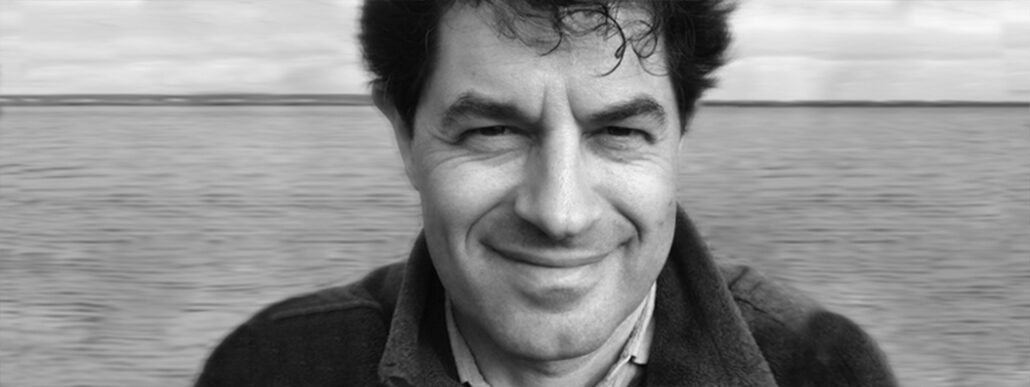
Stefan Grandinetti worked as a cinematographer for feature films, documentaries, image, and advertising film productions even while he was still studying at the Film and TV University in Potsdam-Babelsberg.
In 2005, he began working as a lecturer in the field of cinematography at various film and art academies, including Munich, Potsdam-Babelsberg, and Karlsruhe. Five years later, he was appointed professor of cinematography and digital cinematography for film and television at the Stuttgart Media University.
His work has received valuable nominations and awards, including an International EMMY for “Best Documentary” with the film “Das Leben geht weiter” (Life Goes On), directed by Mark Cairns, a Kodak and BAFTA Award at the Aspen Shortsfest in 2005 for Best Cinematography with the film “Rain is Falling” by director Holger Ernst, and the Prix Europa for Best Documentary with the film “LEBENS(W)ENDE” (Turning Point), directed by Razvan Georgescu.
He has been a member of the German Cinematographers Association (bvk) since 2007.
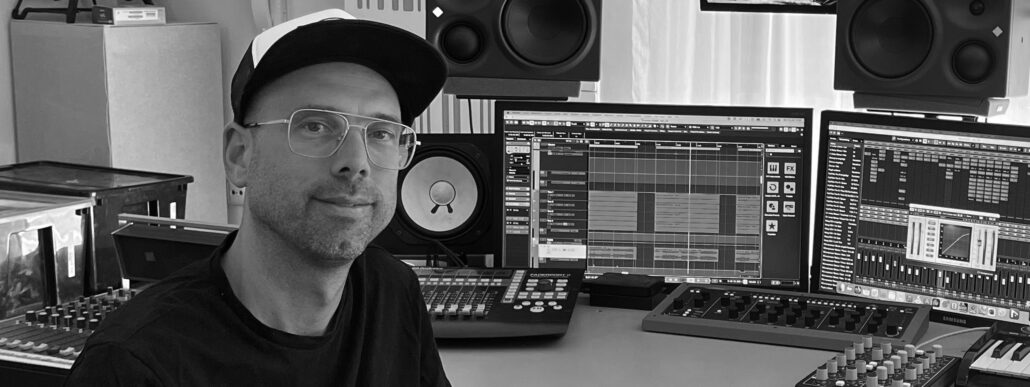
Fabian Schaller works as a sound engineer specializing in sound design, film sound mixing, on-set sound recording, and music production.
After completing his Bachelor of Engineering, he set up his own business in 2013 and has been working freelance ever since. In 2014, he got a permanent position at the Center for Media Competence at the University of Tübingen in the field of sound.
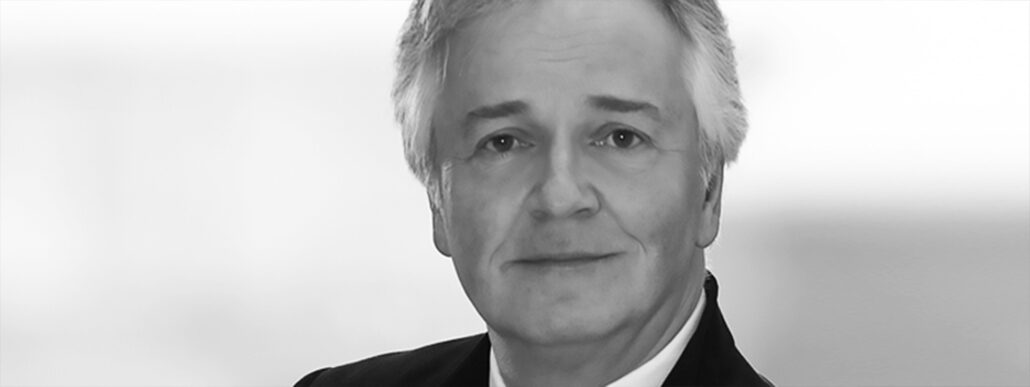
Hartmut Höll is a German pianist and professor of Lied interpretation at the Karlsruhe University of Music.
For decades, he has been one of the most sought-after piano accompanists. For ten years from 1982, he accompanied the singer Dietrich Fischer-Dieskau, among others. He has also collaborated with musicians such as Tabea Zimmermann and Renée Fleming.
In addition to his professorship in Karlsruhe, Hartmut Höll is also a guest professor abroad, including in Salzburg, Helsinki, Zurich, and New York. He also teaches annually at the Shanghai Conservatory of Music.
His work, which includes countless concerts and around 60 CD productions, has been awarded multiple times. In 1990, he received the Robert Schumann Prize of the City of Zwickau, and in 1997, he received the ABC International Music Award, which was presented to him together with Mitsuko Shirai.
Hartmut Höll is an honorary member of the Robert Schumann Society Zwickau and the St. Petersburg Philharmonic Society.

Mitsuko Shirai is a Japanese singer, both a soprano and mezzo-soprano, and a professor of Lied interpretation at the Karlsruhe University of Music.
She is renowned for her internationally acclaimed Lieder recitals and masterclasses. She continues to perform as a soloist in orchestral concerts and opera productions and has contributed to numerous award-winning recordings.
She has also served as a juror for prestigious singing competitions such as the International Hugo Wolf Competition Stuttgart, the Robert Schumann Competition Zwickau, the International ARD Competition Munich, and the International Lied Competition Stuttgart 2001.
For her achievements, she has received numerous awards, including the Robert Schumann Prize of the City of Zwickau in 1982, the Grand Idemitsu Music Prize for her entire artistic oeuvre in 1996, and the ABC International Music Award. She is also a recipient of the Order of the Rising Sun and the Cross of the Order of Merit of the Federal Republic of Germany for her artistic and pedagogical achievements.

Yue Wang initially received her vocal training at the Shanghai Conservatory of Music from 2014 to 2019. She is currently continuing her studies at the Karlsruhe University of Music.
She has secured two awards for her singing, including the Young Artist Platform Prize at the International Lied Festival Zeist and the Rainer Koch Memorial Prize.
She has been performing regularly as a soloist in works by Wolfgang Amadeus Mozart and Benjamin Britten, often within the framework of the Mozarteum Summer Academy, since 2016.

Ilker Arcayürek is a Turkish-born tenor and opera singer from Austria.
His opera career began in 2010 at the Zurich Opera Studio. From 2013 onwards, he was a member of the ensemble at the Klagenfurt City Theatre and the Nuremberg State Theatre for several years. He is the first prize winner of the International Lied Competition of the International Hugo Wolf Academy in Stuttgart. His discography includes acclaimed recordings of works by Wagner, Schubert, Mahler, Beethoven, and other composers.

Victoire Bunel is a French mezzo-soprano.
Since 2013, she has been under contract at the Paris National Conservatory of Music but also performs throughout France and Europe.
Her career has already been marked by several awards and competition placements, including the ’Gabriel Fauré – Déo dat de Séverac special prize,’ fourth place at the Mozart Competition in London in 2016, and first place at the London Nancy Nuttall Competition in 2017.
Numerous CD recordings attest to her extensive vocal repertoire.
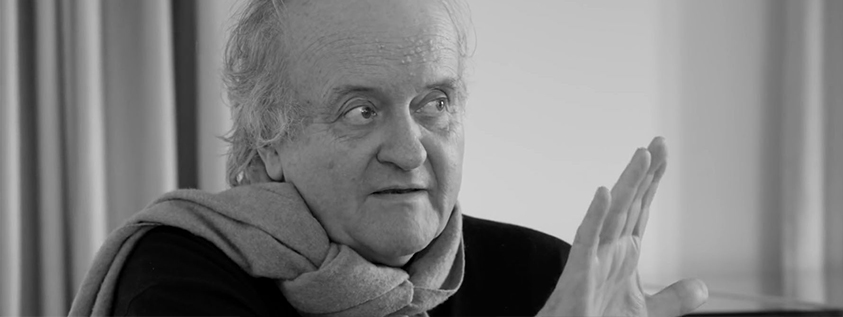
Wolfgang Michael Rihm is a German composer, musicologist, and essayist.
Since 1985, he has held the chair of composition at the Karlsruhe University of Music and is also a member of the academies of arts in Munich, Berlin, and Mannheim, as well as a member of the board of trustees of the Heinrich Strobel Foundation in Baden-Baden. He also works as a musical advisor for the Deutsche Oper Berlin and the Center for Art and Media Technology in Karlsruhe.
His work has been awarded numerous prizes, including the Kranichstein Music Prize, the Reinhold Schneider Prize of the City of Freiburg, the Jacob Burckhardt Prize of the Johann Wolfgang von Goethe Foundation, and the German Music Authors’ Award (GEMA). Wolfgang Rihm has been decorated with both the Order of Merit, and the Grand Cross of the Order of Merit of the Federal Republic of Germany.
His well-known compositions include “Faust und Yorick” (1976), “Jakob Lenz” (1979), and “Oedipus,” with texts by Sophocles (1987). More recent major works include the opera “Dionysos,” a fantasy on Nietzsche (2010), and a horn concerto (2013-2014).

Pirmin Grehl is a German flautist and professor of flute at the Karlsruhe University of Music.
He studied with Renate Greiss-Armin and Jacques Zoon in Karlsruhe and Berlin. Subsequently, he successfully participated in numerous national and international music competitions, including winning first prize at the International Carl Nielsen Flute Competition in Odense and the Brüder-Busch Prize at the ARD International Music Competition. In 2009, he released a CD featuring the works of composer Jonathan Harvey, for which he received an award.
As a soloist, he has performed with several Orchestras including but not limited to the Bavarian Radio Symphony Orchestra, the Stuttgart Radio Symphony Orchestra, the Berlin Symphony Orchestra, the Kaiserslautern Radio Orchestra, the Rheinische Philharmonie Koblenz, and the Jena Philharmonic Orchestra. Pirmin Grehl has released various CDs as a soloist with orchestra and in chamber music ensembles.
After several years of teaching at the Hanns Eisler School of Music in Berlin and the Lucerne University of Applied Sciences and Arts, Pirmin Grehl was appointed professor of flute at the Karlsruhe University of Music in 2017.